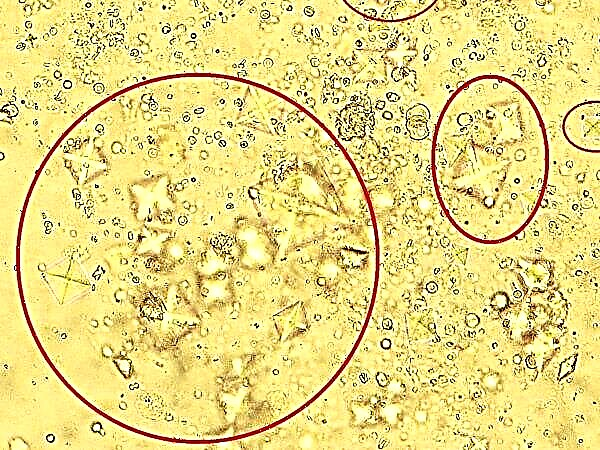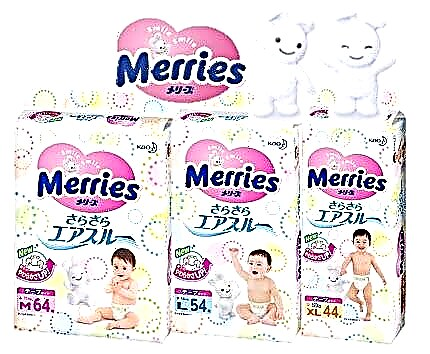Baby's skin is very vulnerable, as it has less protective capacity than adults. This makes her an object of special concern. It is through the skin that the baby learns the world, the touch of the parents helps him to calm down and feel safe. What are the features of proper skin care for a newborn baby, and how to ensure its good condition?

Skin care is necessary
Essential Knowledge of Newborn Skin
The baby's skin is not fully mature, they are very different from adults, starting to resemble them only in the third year of life:
- In full-term newborns, the epidermis is only slightly thinner and more tender than in adults;
- The pH value of the skin acidity, equal to 5.4-5.9 (as in an adult), is reached after 2-2.5 months;
- The baby's epidermis produces little pigment, therefore it is more sensitive to the sun;
- There are fewer sweat glands in the skin, their activity is much lower, so children adapt worse to high temperatures and are prone to overheating;
- Hair growth and loss in babies are synchronized, which is associated with temporary "baldness" of the child at the age of several weeks;
- The ratio of epidermal surface area to body weight in infants is higher, so babies lose a lot of water as a result of its evaporation through the skin and are prone to more absorption of drugs and chemicals when they come into contact with the skin.
Features of the skin of premature babies
In premature babies, the skin has the following characteristics:
- thinner and more delicate than that of babies born on time;
- blood vessels are visible through the immature epidermis;
- the lipid layer that protects the skin from damage is almost completely absent;
- The pH of the skin is 6.3-6.7, which contributes to the spread of bacterial and fungal infections.
Important! In premature babies, toxins, bacteria and substances contained in children's cosmetics can more easily penetrate the skin, which affects the general condition of the baby. These children are more prone to skin irritation caused by urine and feces.
The main skin problems in infants
The most common baby skin problems are:
- Prickly heat is a small red or pink rash that appears most often under the armpits, on the head, neck, back, chest. The reason may be overheating of the baby.
- Fatty yellowish scabs and scales are a symptom of seborrheic dermatitis on the head.
- Children's acne. Acne on the baby's face is the result of the presence of mother's hormones in his body. They pass over time.
- Atopic dermatitis. Redness and papules on the child's face are accompanied by severe itching, appear due to allergic reactions of the body or dry air in the baby's room.

Atopic dermatitis
- Diaper dermatitis develops as a result of irritation of the baby's skin due to prolonged contact with feces and urine. The appearance of lesions of the skin is facilitated by mistakes in caring for the child (intimate areas are washed too rarely), wearing a tight diaper on hot days, diarrhea.
Age of skin care initiation
The daily skin care of the newborn begins immediately after the hospital. If bathing is not recommended by all pediatricians from the first day due to the presence of a remnant of the umbilical cord, then hygiene procedures for washing intimate areas cannot be postponed.
Basic rules for skin care
Knowledge of the characteristics of baby skin obliges parents to carry out systematic skin care, including bathing, moisturizing, lubricating, as well as choosing the right type of clothing and diapers.
Navel care
The remainder of the umbilical cord usually lasts up to 4-5 days in a newborn. After it falls away, a wound remains, which must be carefully looked after. This is done daily for the first two weeks.
Stages of wound treatment:
- Apply a few drops of 3% hydrogen peroxide solution to the umbilical wound;
- Blot with a sterile napkin;
- Lubricate with an antiseptic, in the role of which brilliant green is used.

Umbilical wound treatment
Do not treat the wound more than 2 times a day, and also lubricate it too thickly with brilliant green to avoid skin irritation. Bathing a child with an unhealed navel wound is allowed only in boiled water.
Important! If parents notice any changes in the navel wound (redness, swelling, unpleasant odor), they should immediately consult a doctor.
Correct washing
The baby's skin is very delicate, the nose, ears and eyes are tiny, and many mothers do not wash for fear that it will harm the baby. However, neglect of hygiene can lead to skin problems. Taking care of your baby's face is easy. Basic accessories - boiled water, cotton pads, a towel.
For the morning toilet, you must apply the following algorithm of actions:
- At the first stage, the eyes are washed. The technique of washing them is important, since if improperly done, water can flood the child's eyes and irritate the mucous membranes. The baby should be placed on the changing table, the head should be slightly tilted to one side. With clean hands, take a cotton pad, moisten it with water and rinse the eye from its outer corner to the nose. Repeat the procedure on the other eye using a new cotton pad. Then dry the eyes with a soft towel;
- Gently wash face with another cotton pad: chin, forehead and cheeks. When washing your face, pay attention to the adjacent areas: folds around the neck and behind the ears.

Washing baby
Important! Do not rub the baby's skin after washing, just pat it dry with a soft towel.
If after washing your face is very dry, it is recommended to lubricate it with a baby cream designed for the face.
Bathing
Caring for a newborn's body necessarily includes regular bathing. It is recommended to bathe small children daily in summer, in winter - once every 2-3 days. Basic bathing rules:
- The water temperature should correspond to body temperature (about 37 degrees).
- The duration of the bath is 10-15 minutes.
- The choice of detergent depends on the condition of the newborn's skin. If it does not flake off or dry out, choose a baby soap with a neutral pH (5.5). If your baby's skin is dry, rough, use a baby moisturizing bath lotion or emollients. They do not dry the skin, on the contrary, they additionally moisturize it. After such a bath, a film remains on the skin, protecting it from moisture loss.
Important! Adult detergents are alkaline and can destroy the protective lipid layer of the skin, dry it out and cause irritation.
- During bathing, it is necessary to thoroughly rinse the neck and groin folds.

Baby bathing
- The head can be washed with the same product as the body, being careful not to get it in the eyes.
- After bathing, pat your skin dry with a towel and apply a moisturizing baby cream.
Sun protection
Pediatrics adheres to evidence-based guidelines for children's sun exposure. If parents want to spend time on the beach with their child, they must comply with them:
- Children under 3 years old should not sunbathe at all. Even if they are in the shade, you still cannot hide from the sun. You should use sunscreen with the highest protection factor.
- It is necessary to avoid the sun from 10 am to 4 pm, so it is better to go to the beach with babies early in the morning or in the evening.
- For a small child, it is better to wear light clothing so that he does not have bare arms and legs. There should be a panama hat on the head.

Kids on the beach
Baby clothes
In order to prevent chafing, skin rashes and other reactions, methodical recommendations of pediatricians contain requirements for children's clothing:
- it must be made from 100% natural materials;
- the presence of rough seams, knots, buttons and buttons in places adjacent to the body is not allowed.
Important! Parents should make sure that the clothes are not tight and do not hinder the movements of the baby.
Diapers and nappies
In order to eliminate the appearance of diaper dermatitis, special attention should be paid to the choice of diapers and diapers and their correct use:
- Diapers are chosen according to the age and weight of the baby. Tight diapers will chafe the skin;
- From time to time it is necessary to arrange air baths and leave the child without a diaper;
- You should buy diapers only from a trusted manufacturer made of hypoallergenic materials;
- Diapers must be made from natural materials and be dry and clean;
- Diapers should be changed frequently. In this case, it is necessary to thoroughly cleanse the child's skin from feces and urine. It is convenient to do this under running water. Girls, unlike boys, are sure to be washed towards the anus. After washing and drying the problem skin, you can lubricate it with baby oil.
Dr. Komarovsky notes that in children who lose a lot of fluid, for example, in hot and dry weather, urine is concentrated and more irritating to the skin. Therefore, it is necessary to monitor the drinking regime of the baby.
Child on a walk in winter and summer
You should not walk with your baby in windy, very frosty or hot weather.
Important! The basic rule for walking with a baby is that he should have one layer of clothing more than an adult. However, this norm does not have to be observed in the heat.
In summer, light clothes are used for babies. When the sun is out on the stroller, you need to close the protective visor. In winter, baby's main outerwear is overalls. It is comfortable and protects the baby well from the cold. The hat should not be too warm, especially if the baby is still wearing a hood.

Child on a winter walk
If your baby cries while walking, it could mean that he is cold or hot. A good sign if the baby is sleeping peacefully.
Crusts on the head
Crusts on a child's head do not pose a direct threat to his health. They usually go off on their own as the baby grows. To prevent or reduce their appearance, it is necessary to maintain the humidity level in the child's room at 50-70% and try not to wash your hair often using soap and shampoo.
Proper care of the skin of a newborn is one of the most important things for his health. Baby's skin is very delicate and sensitive, and due to proper care of it, many problems can be avoided.



